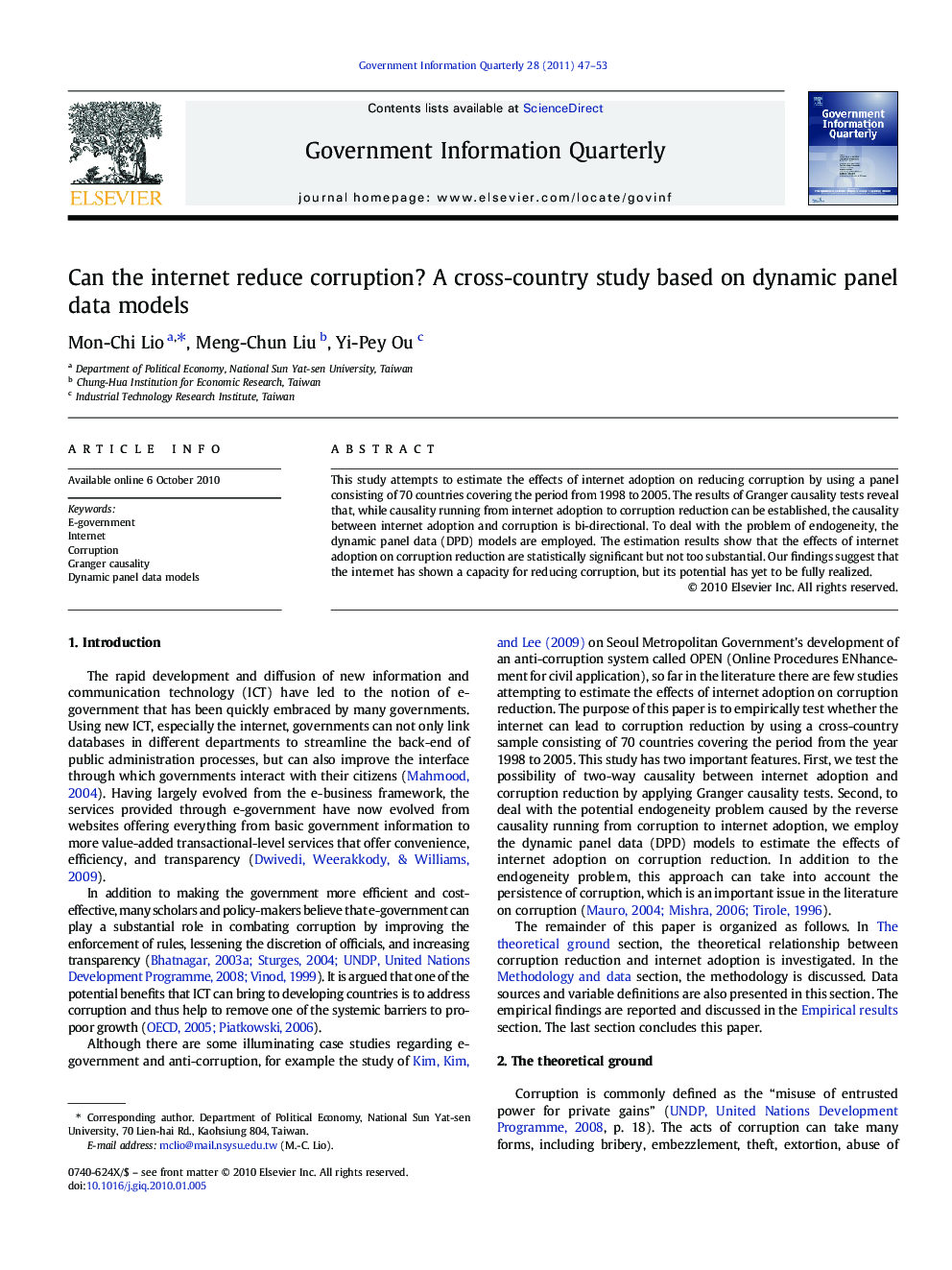| Article ID | Journal | Published Year | Pages | File Type |
|---|---|---|---|---|
| 1024817 | Government Information Quarterly | 2011 | 7 Pages |
This study attempts to estimate the effects of internet adoption on reducing corruption by using a panel consisting of 70 countries covering the period from 1998 to 2005. The results of Granger causality tests reveal that, while causality running from internet adoption to corruption reduction can be established, the causality between internet adoption and corruption is bi-directional. To deal with the problem of endogeneity, the dynamic panel data (DPD) models are employed. The estimation results show that the effects of internet adoption on corruption reduction are statistically significant but not too substantial. Our findings suggest that the internet has shown a capacity for reducing corruption, but its potential has yet to be fully realized.
Research Highlights► The causality between internet adoption and corruption reduction is bi–directional. ► The internet can reduce corruption, but the effects are not too substantial. ► OLS is likely to over–estimate the effects of the internet on corruption reduction.
